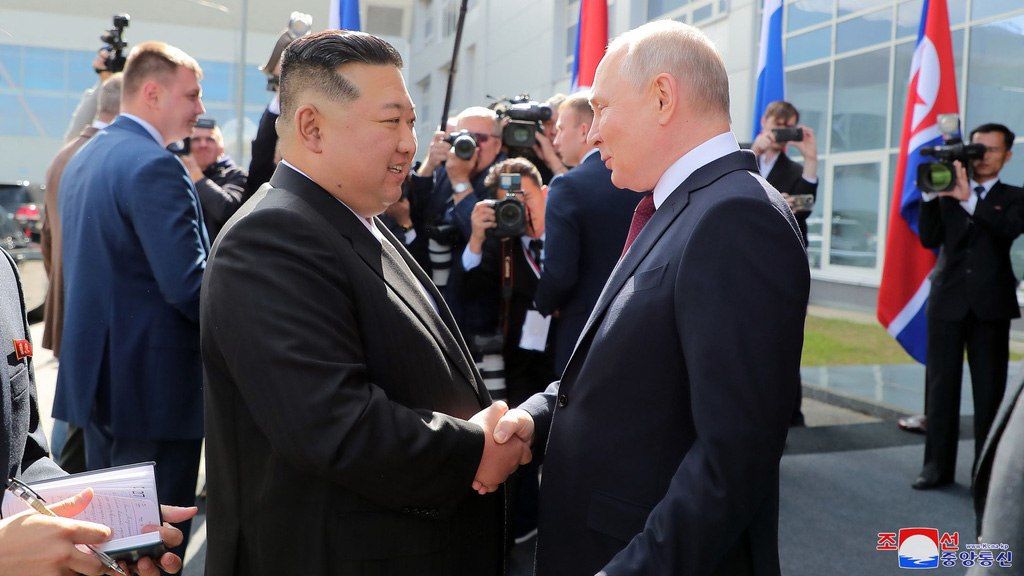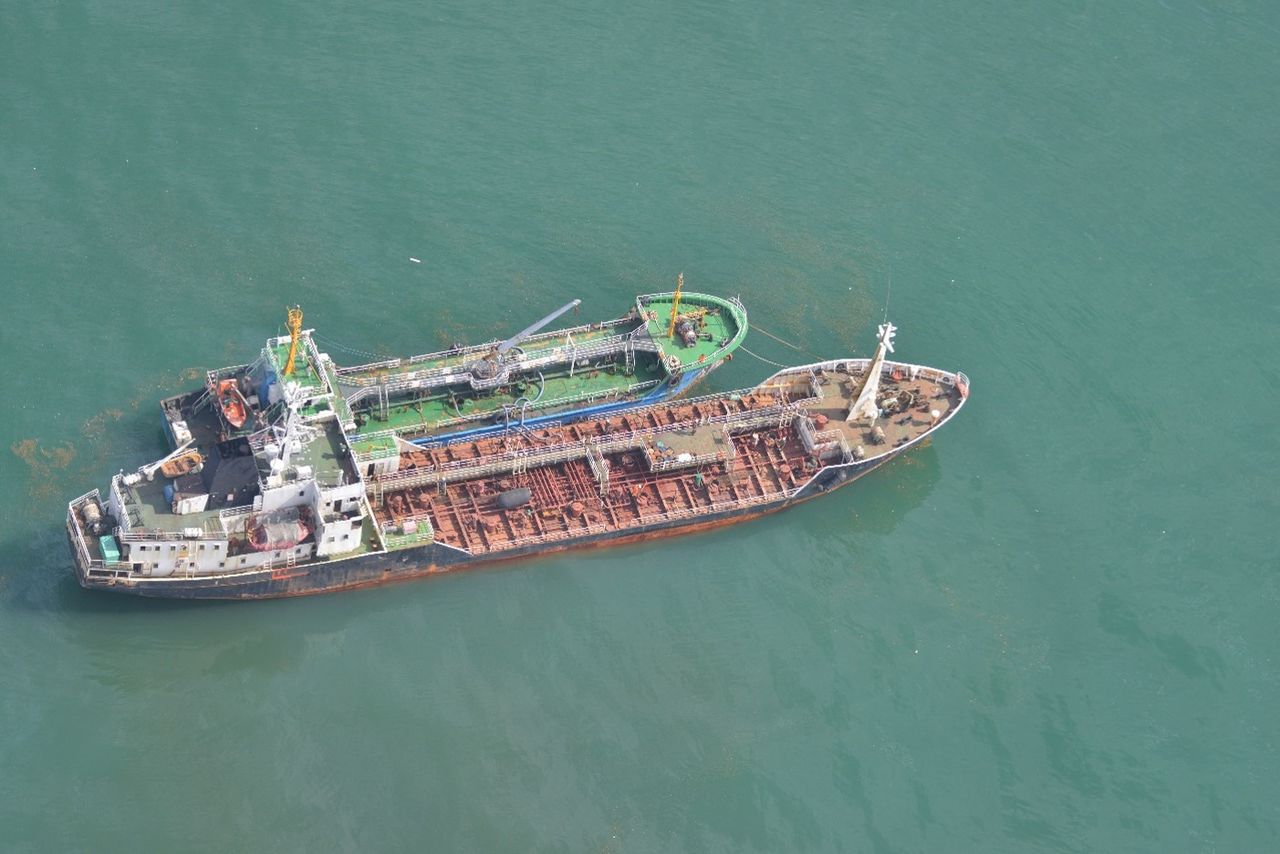
Unfettering North Korea: Russia Subverts Nonproliferation with Veto of Sanctions Panel
Politics- English
- 日本語
- 简体字
- 繁體字
- Français
- Español
- العربية
- Русский
A Check on North Korea
In October 2006, in the aftermath of North Korea’s first nuclear test, the UN Security Council unanimously passed resolution 1718, imposing a range of economic sanctions on the country. A Security Council committee was created to oversee implementation of the sanctions, and in 2009 a panel of experts was established to assist the Sanctions Committee in carrying out its mandate. Based in New York City, the panel consists of eight specialists in a variety of fields, including nuclear and missile technology, finance, and customs, all appointed by the UN Secretary-General.
Between October 2006 and December 2017, the Security Council responded to North Korean nuclear tests and missile launches with a total of 11 resolutions imposing concrete sanctions covering travel, financial assets and banking transactions, trade, and transport.
Since 2009, the expert panel has monitored violations and evasions of these sanctions on the basis of information from member states, the media, and research organizations, supplemented by its own on-site investigations and interviews. It has emerged as the eyes and ears of the Sanctions Committee, providing crucial support through its yearly interim and final reports to the Security Council and its proposals and recommendations for bolstering implementation. From the outset, the mandate of the panel needed to be renewed every 12 months, but until this year, the Security Council had unanimously approved the panel’s extension each March, after receiving its final report.
Illicit Moscow-Pyongyang Dealings
Then last March, Russian UN Ambassador Vasily Nebenzya told the Security Council that the situation on the Korean Peninsula had “changed fundamentally” and that Russia would oppose an extension of the panel’s mandate unless the sanctions themselves underwent a substantive review. Delaying the final vote, Japan, South Korea, and the United States worked hard to alter the outcome, but to no avail. On March 28, when the resolution was put to a vote in the 15-member council, 13 voted in favor, China abstained, and Russia voted against, exercising its veto power as a permanent member. With Moscow showing no signs of relenting, it is assumed that the panel will cease to exist after April 30, when its current mandate ends.
In assessing the motives for Russia’s veto, it is difficult to ignore the rapid growth in military cooperation between Russia and North Korea since the former launched its invasion of Ukraine. In September 2023, North Korean General Secretary Kim Jong-un traveled to the Russian Far East for a summit with Russian President Vladimir Putin at the Vostochny Cosmodrome, a Russian spaceport. It was reported that the two leaders discussed a secret agreement for North Korea to supply Russia with missiles, artillery shells, and other arms it needs to sustain its offensive against Ukraine.
Moscow and Pyongyang have denied any such dealings, which would be a flagrant violation of Security Council sanctions. But in January this year, citing satellite data and other evidence, Washington stated that North Korea had in fact provided Russia with dozens of ballistic missiles and launchers. The following month, South Korean Minister of National Defense Shin Won-sik told the media that since July 2023, North Korea had supplied Russia with nearly 7,000 containers of weapons and ammunition—potentially representing more than 3 million rounds of 152-millimeter shells or 500,000 rounds of 122 mm shells—to support the war on Ukraine.(*1)
At the March 28 Security Council meeting, a series of speakers blasted Russia’s veto in light of such information. Japanese UN Ambassador Yamazaki Kazuyuki called it “irresponsible and shameful” for Russia to attack Ukraine using munitions purchased from North Korea in violation of the council’s resolutions.
Ship-to-Ship Transfers and Cyber-Theft
The expert panel’s monitoring has been instrumental in uncovering a wide range of illegal activities supporting North Korea’s nuclear and missile programs. Its annual reports have repeatedly highlighted the ship-to-ship transfers by which North Korean vessels and smugglers from other parts of Asia conduct illegal trading in petroleum products, drugs, arms, and other contraband goods while at sea. In 2021, one such report led to the US seizure of a Singapore-flagged oil tanker used for illicit deliveries of petroleum products to North Korea.(*2)

In May 2018, a Japan Maritime Self-Defense Force aircraft documented a possible illegal ship-to-ship transfer of oil and other materials between DPRK-flagged tanker Sam Jong 2 (bottom) and a tanker of unknown nationality located 250 kilometers off the coast of Shanghai. (© Jiji)
In the final report released by the Security Council on March 20 this year, the panel estimated that North Korea obtained about half of its foreign currency revenue from cyber-attacks. Since 2017, it said, North Korea’s hackers had stolen about $3 billion in crypto-assets, which Pyongyang used for nuclear and missile development. The panel also said it was investigating allegations that North Korea had supplied Russia with more than 1,000 containers of military equipment.(*3) It is widely assumed that Russia’s veto of the panel’s extension was triggered at least in part by such content.
This will be the last report submitted by the expert panel, which will cease to function after the end of April. Specialists in the field are deeply concerned about the impact on the enforcement of North Korea sanctions and on nonproliferation efforts in general. As explained by Hugh Griffiths, who formerly served as the expert panel’s coordinator, one of the body’s key functions was providing information on individuals and companies that were violating financial sanctions against North Korea or otherwise supporting the illicit proliferation of nuclear weapons and ballistic missiles. “Without the panel’s biannual reporting,” he said, “global banks and insurance companies now lack the gold standard reports they once used to deny proliferation networks access to the global financial system.”(*4)
Russia’s war of aggression against Ukraine is an egregious breach of the European peace order. Now, with China’s tacit approval, Russian subversion of the international system of law and order has spread from Europe to Northeast Asia.
(Originally published in Japanese. Banner photo: North Korean General Secretary Kim Jong-un shakes hands with Russian President Putin at the Vostochny Cosmodrome, an advanced spaceport in Russia’s Far East, September 13, 2023. © Korean News/Kyōdō.)
(*1) ^ “North Korea has Sent 6,700 Containers of Munitions to Russia, South Korea Says,” Reuters, February 27, 2024, https://www.reuters.com/world/north-korea-has-sent-6700-containers-munitions-russia-south-korea-says-2024-02-27/
(*2) ^ “United States Seizes Oil Tanker Used to Violate Sanctions Against North Korea,” US Department of Justice Office of Public Affairs, July 30, 2021, https://www.justice.gov/opa/pr/united-states-seizes-oil-tanker-used-violate-sanctions-against-north-korea
(*3) ^ “UN Panel says N. Korea Earns Half of Foreign Currency Through Cyberactivities,” NHK World News, March 21, 2024, https://www3.nhk.or.jp/nhkworld/en/news/20240322_03/
(*4) ^ “Russian Veto Ends U.N. Panel Monitoring North Korea Sanctions,” Washington Post, March 29, 2024, https://www.washingtonpost.com/world/2024/03/29/russia-veto-brings-end-un-panel-monitoring-north-korea-sanctions/